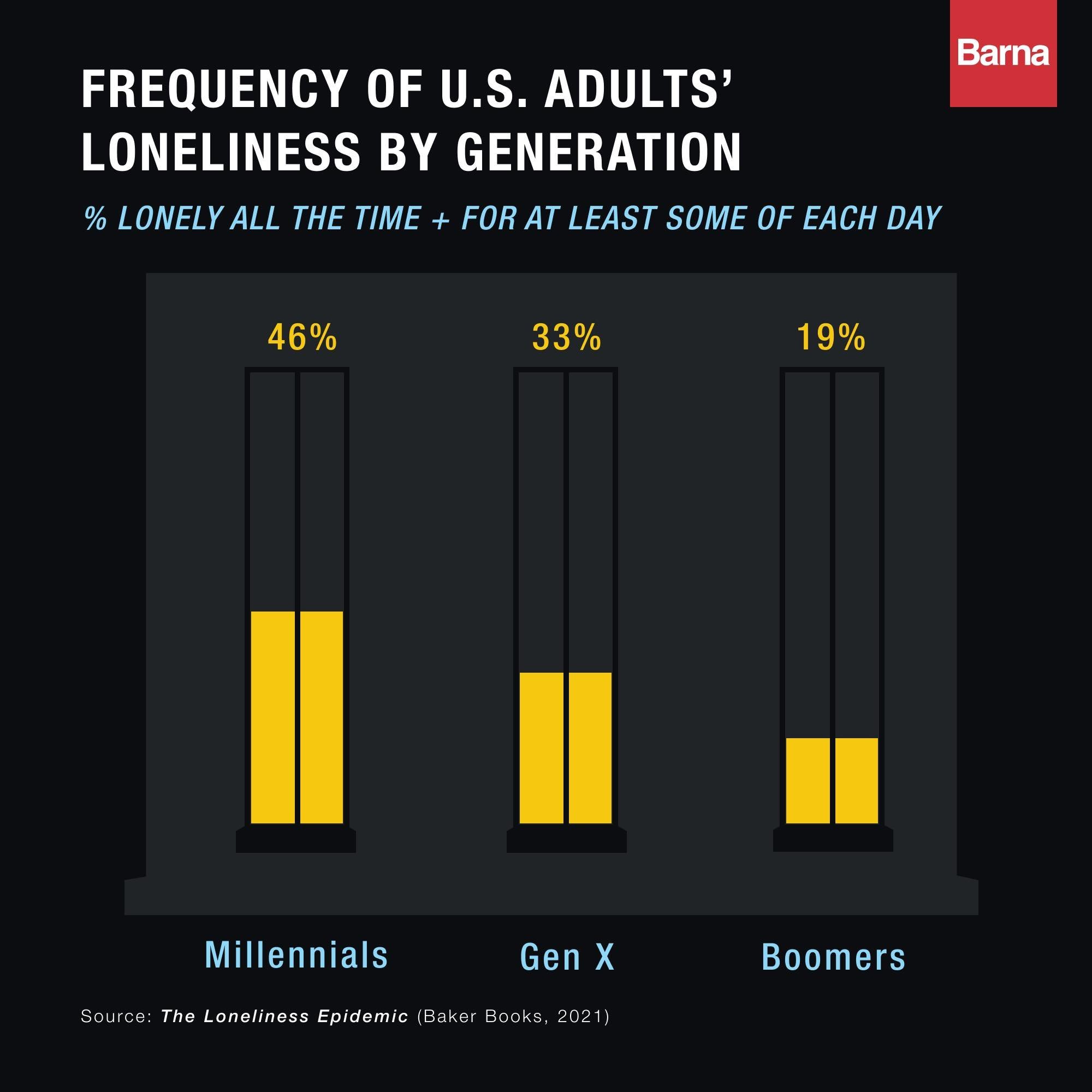
Resurrection Life
What bad news does the resurrection of Jesus undo? What does the resurrection of Jesus accomplish in our lives and in this world?
Jesus’ resurrection changes all things. There is everything pre-resurrection, and then there is everything after the resurrection. After the resurrection, everything is changed. Because Jesus lives, we can live and experience his resurrection life.
In Matthew’s gospel account of Jesus’ resurrection, the angel spoke to the women at the tomb, saying, “He is not here, for he has risen, as he said. Come, see the place where he lay.” (Matthew 28:6, ESV).

Seeing Jesus
What do you want to see? Who do you want to see? Where are you looking? Who are you looking for? Who are you looking to see?
It is mostly true that we see what we are looking to see. It has been said, “Be careful about what you are looking for, you might find it.”
In John’s gospel account, the Greek people were looking to see Jesus. John tells us, “Now among those who went up to worship at the feast were some Greeks. So these came to Philip, who was from Bethsaida in Galilee, and asked him, ‘Sir, we wish to see Jesus.’ Philip went and told Andrew; Andrew and Philip went and told Jesus.” (John 12:20-22, ESV).

God’s Cleansing
If Jesus were to purify the temple of our lives, what tables would he overturn? What would Jesus “drive out” of our lives so that we would be purified?
At the cleansing of the temple, Jesus sought to purify his Father’s house of prayer. John’s gospel account tells us, “And making a whip of cords, Jesus drove them all out of the temple, with the sheep and oxen. And he poured out the coins of the money-changers and overturned their tables.” (John 2:15, ESV).
The temple, the dwelling place of God, had become corrupted by greed and misuse. The religious leaders had allowed the sell of sacrifices, and the exchange of money for the temple tax at a profit, to overshadow God and the ability for all people to come and to worship and pray.
Jesus said, “Take these things away; do not make my Father’s house a house of trade.” (John 2:16, ESV).

The True Temple
Do we worship the place where God dwells or do we worship God who dwells with us? Is it possible to confuse our religious form, practices, and places with our relationship with Jesus?
When Jesus came into the temple complex at Passover and cleansed the temple, he was purifying the focus of the pace and pointing people back to God. Our object of worship should always be God himself. Our focus on worship should never be our religious practice or the place of our worship. Our focus should be God.
When the Jewish leaders questioned Jesus’ cleansing of the temple, their line of questioning highlighted that they had made an idol out of their religious practices, and the many benefits they had brought them, and it highlighted that they had made an idol out of the temple itself.
After Jesus made a whip of cords and drove out the money changers and released the animals caged for sale and sacrifice, the Jews said to him, “‘What sign do you show us for doing these things?’ Jesus answered them, ‘Destroy this temple, and in three days I will raise it up.’ The Jews then said, ‘It has taken forty-six years to build this temple, and will you raise it up in three days?’ But he was speaking about the temple of his body. When therefore he was raised from the dead, his disciples remembered that he had said this, and they believed the Scripture and the word that Jesus had spoken.” (John 2:18-22, ESV).

Who is My Neighbor?
Who is your neighbor? Do you know your neighbor well? What does your neighbor need? How do you love your neighbor well?
Jesus calls his followers to love their neighbor.
In Mark’s Gospel, Jesus said, “‘You shall love your neighbor as yourself.’ There is no other commandment greater...” (Mark 12:31, ESV).
While loving our neighbor is one of the greatest commandments, we cannot love our neighbor if we do not know our neighbor. We also cannot love our neighbor, if we do not believe that they are truly our neighbor.
This truth is at the heart of the parable of The Good Samaritan. When asked by an expert in the law, “what must I do to inherit eternal life?” Jesus asked, “What is written in the Law?” Jesus asked, “How do you read it?” The man answered, “‘Love the Lord your God with all your heart and with all your soul and with all your strength and with all your mind’; and, ‘Love your neighbor as yourself.’” (Luke 10:25-27, ESV).
Doug Greenwold asserts, “This expert in the Law no doubt held the view of his observant Jewish culture that there were a goodly number of people who would never qualify to be ‘my neighbor.’ That view is somewhat understandable since Leviticus seems to suggest that a ‘fellow Israelite’ (19:17) and ‘your people’ (19:18a) are mentioned within the context of ‘love your neighbor as yourself’ (19:18b).” (Greenwold, Doug. That Good Samaritan, p. 22).

That Good Samaritan
"That Good Samaritan," by Doug Greenwold, is a timely book in an election year when our country is divided as ever.
It has been said that America has not been this divided since The Civil War. This is why we need to explore the questions this book addresses, which are: "Who is my neighbor?" and "What does it mean to be neighborly?" Religious, cultural, ethnic, political division, and polarization was the first century context of Jesus telling the Parable of the Good Samaritan in Luke 10:25-37.
When Jesus was asked what must be done to inherit eternal life by an expert in the law, Jesus affirmed the man's answer, “‘Love the Lord your God with all your heart and with all your soul and with all your strength and with all your mind’; and, ‘Love your neighbor as yourself.’ Jesus said, 'You have answered correctly, do this and you will live.'” (Luke 10:27 and 28, ESV).

Hearing God on the Mountain
Do we need a mountaintop experience to hear God speak? Can we miss hearing God’s message, even if we have a mountaintop experience? Does God also speak in the valleys?
God speaks in mountaintop experiences and God speaks in the valley. God is always speaking to us. God’s message of love and his revelation of himself never changes. God’s message is the same whether we are on the mountaintop or in the valleys of everyday life.
We are to listen to God when he speaks to us, whether we are on the mountaintop or in the valleys between.
The Apostles Peter, James, and John heard God speak on the holy mountain. In his second letter, Peter tells us of his eyewitness account, saying, “For we did not follow cleverly devised myths when we made known to you the power and coming of our Lord Jesus Christ, but we were eyewitnesses of his majesty. For when he received honor and glory from God the Father, and the voice was borne to him by the Majestic Glory, ‘This is my beloved Son, with whom I am well pleased,’ we ourselves heard this very voice borne from heaven, for we were with him on the holy mountain.” (2 Peter 1:16-18, ESV).

The Church’s Mission
What is the mission of the church? How did Jesus live an intentional life of mission?
Every follower of Jesus was created on purpose and for purpose. We were made for mission.
The church’s mission can be summed up in being disciples, making disciples, and ministering to the needs of others as we do life together.
In Mark’s gospel account, when Jesus was doing life, preaching, teaching, and healing, we see Jesus modeling a purposeful and missional life.
Mark tells us, “And rising very early in the morning, while it was still dark, Jesus departed and went out to a desolate place, and there he prayed. And Simon and those who were with him searched for him, and they found him and said to him, ‘Everyone is looking for you.’ And he said to them, ‘Let us go on to the next towns, that I may preach there also, for that is why I came out.’ And he went throughout all Galilee, preaching in their synagogues and casting out demons.” (Mark 1:35-39, ESV).

Jesus’ Teaching and Authority
Whose teaching do you listen to and apply to your life? What authority do you submit to? What does it look like when good teaching and right authority converge in our life?
We are each influenced by teachers and authorities around us. Every teaching, worldview, and person of influence, or authority, can shape our thinking and actions as we live our lives.
In Mark’s Gospel account, Jesus taught in the synagogue in Capernaum on the Sabbath Day. Jesus taught as one having authority, unlike the scribes. Mark tells us, “And they were astonished at his teaching, for he taught them as one who had authority, and not as the scribes.” (Mark 1:21-22).
The scribes were recorders, interpreters, and teachers of the law. They were supposedly authorities on the word of God and his law, but they were not always practitioners of the word of God and his law.

Peter’s Confession
Who do you say Jesus is? Do you believe Jesus is who he says he is? How have you responded to Jesus because of your belief in him?
What we believe about Jesus is the most important thing we can think about. Who we think Jesus is shapes everything about us and our lives. This was the case with Peter’s confession of Jesus as the messiah. Peter’s belief in who Jesus is changed everything.
In the district of Caesarea Philippi, Jesus asked his disciples, “Who do people say that the Son of Man is?” (Matthew 16:13, ESV). This is the most important question that can be asked. More important is how we answer this essential question for ourselves.
The disciples answered Jesus with a deflection, saying, “Some say John the Baptist, others say Elijah, and others Jeremiah or one of the prophets.” (Matthew 16:14, ESV). However, Jesus was not interested in what other people thought about his identity. He was concerned about who each of them thought he was. Jesus asked them, “But who do you say that I am?” (Matthew 16:15, ESV).

Following Jesus’ Call
What are the implications of following Jesus? Who does God call? What does God’s calling look like for us? Are we called to leave some things behind? Are we able to hold on to some things and follow Jesus?
When God calls us from something, he is also calling us to something.
Obediently following Jesus has consequences and real implications for our lives. However, God uses all of who we are to do the ministry he is calling us to do. While we may be called to leave some things behind, God also uses who we are, our personality, our vocation, our skill set, and our giftedness.

Listening for God’s Call
Do you hear God when he speaks to you? Are you listening to what God is calling you to do?
It has been said that “God is always speaking.” However, we do not always hear God when he speaks or listen to what God is saying to us or asking us to do.
This was the case with the boy Samuel. God was speaking in a time when God was not being heard. The Judges were ruling the land of Israel and people were sinful and far from obediently following and listening to God and God’s laws.
The First Book of Samuel says, “Now the boy Samuel was ministering to the LORD in the presence of Eli (the priest in the Tabernacle). And the word of the LORD was rare in those days; there was no frequent vision.” (1 Samuel 3:1, ESV).
When God spoke to Samuel, he did not understand that it was God speaking, because Samuel was not taught to listen to the word of the Lord, and he had not experienced God’s voice and calling. When God spoke, Samuel thought it was Eli speaking and not God.
The scriptures tell us, “Then the Lord called Samuel, and he said, ‘Here I am!’ and ran to Eli and said, ‘Here I am, for you called me.’ But he said, ‘I did not call; lie down again.’ So he went and lay down.” (1 Samuel 3:4-5, ESV).

Loneliness and Discouragement
Have you ever felt lonely, discouraged, or downcast? Are you feeling this way now?
The holiday season can bring up many emotions for people. For some, it is a time of joy and celebration. For others, it can be a time of loneliness, discouragement, and downheartedness.
Recent research from “The Loneliness Epidemic”, written by behavioral scientist Susan Mettes, shows that 19% of Baby Boomers report feeling lonely for at least some of each day. For Generation X, this number rises to 33%. And for the Millennial Generation, it reaches a staggering 46%. At baseline people are feeling lonely and disconnected.
While we may feel loneliness, feel discouragement, and feel downcast, especially during the holiday, we are not alone. God is with us. There are others who are experiencing, and who understand, what we are going through, because they are going through it too. We are not alone.
Through the Prophet Isaiah, God Promises: “The Lord will guide you continually, and satisfy your soul in drought, and strengthen your bones; you shall be like a watered garden, and like a spring of water, whose waters do not fail.” (Isaiah 58:11).

The Epiphany: Your Epiphany
Have you ever had an epiphany? What is an epiphany anyway? And what is the difference between any old epiphany and THE Epiphany?
An epiphany is a revelation, or a moment of insight, or an illumination, or a knowledge of something that you had not had before.
An epiphany can be simple, for instance, “I did not know this actor played in this Netflix series.” An epiphany can be profound and life changing, for instance, “I did not know I had a twin and that we were separated at birth.” Now that would be an epiphany!
The Epiphany, on the other hand, is the great manifestation of Jesus Christ to the Gentiles, observed by the church on January 6th.

Jesus: God’s Gift of Love
What gifts do you enjoy giving? What gifts do you enjoy receiving? What is the greatest gift ever given?
Most of us have given, and have received, good gifts. And most of us enjoy giving and receiving good gifts. God has given us the greatest gift of all by giving us his only son Jesus to save us from our sin and to give us his everlasting life.
When Jesus was about to be sent by God, the angel said to Mary, “Do not be afraid, Mary, for you have found favor with God. And behold, you will conceive in your womb and bear a son, and you shall call his name Jesus. He will be great and will be called the Son of the Most High. And the Lord God will give to him the throne of his father David, and he will reign over the house of Jacob forever, and of his kingdom there will be no end.” (Luke 1:30-33, ESV).
God gave His greatest gift ever, his only son, to all people, through Mary. Jesus is great and is a king forever in the line of David, Israel’s most admired king. Jesus’ kingdom lasts forever and has no end. (2 Samuel 7:1-17)

The Expectation of Joy
What are your expectations? Do you have great expectations for what God has in store for the future? Are you waiting expectantly for joyful resolve?
Hope and joy can be tied to our expectations. Managing expectations can be difficult. If we are aware and honestly reflect, we all have expectations of some kind. We wait hopefully with expectations of future joy.
The pessimist says the key to happiness is the management of your expectations. Actor Michael J. Fox once said, “My happiness grows in direct proportion to my acceptance, and in inverse proportion to my expectations” (Michael J. Fox).
Actress Sandra Bullock, got closer to the truth of expectations when she said, “False expectations take away joy” (Sandra Bullock). Which means, we should set our expectations on true and realistic expectations, like the truth of God’s word and God’s promises fulfilled.
In contrast to the pursuit of happiness, the follower of Jesus seeks great joy in the expectation of what God has in store for the future in ushering in his consummate joy in his advent. The follower of Jesus waits in expectation of the joy of God’s coming Kingdom and his restoration of all things.
John the Baptist anticipated God’s coming Kingdom in sending Jesus the Messiah, saying, “The one who has the bride is the bridegroom. The friend of the bridegroom, who stands and hears him, rejoices greatly at the bridegroom's voice. Therefore this joy of mine is now complete. He must increase, but I must decrease.” (John 3:29-30, ESV).

Preparing the Way for Peace
Are you preparing the way for the peace you need in your life? Is the pathway for peace in your life straight, level, and clear of any obstructions?
We all need God’s peace, and we can all cultivate the pathway for God’s presence and peace.
We can prepare the way for peace in our lives. We can make straight and level pathways for the peace and presence of God in our lives.
The good news of the gospel begins with Jesus Christ, the Son of God. “As it is written in Isaiah the prophet, ‘Behold, I send my messenger before your face, who will prepare your way, the voice of one crying in the wilderness: ‘Prepare the way of the Lord, make his paths straight,’” (Mark 1:1-3, ESV).

Waiting the Work of God
How much do we do the work in regard to our faith? How does God work on behalf of his people who are patiently waiting on him?
As followers of Jesus, we are called into the work of God; however, we have a God who works on our behalf. Our faith and salvation is based on what God has done and is doing. Our faith and salvation is not contingent upon our work or performance.
Waiting is difficult. Waiting on God to work on our behalf can be even more difficult. We desire control and strive anxiously to produce results by our own efforts and frenzied struggling.
The Prophet Isaiah spoke of God’s faithfulness to those who wait on Him, saying, “From of old no one has heard or perceived by the ear, no eye has seen a God besides you, who acts for those who wait for him.” (Isaiah 64:4, ESV).

Waiting on Hope
What are you waiting for? In this broken and fallen world, which is filled with all kinds of despair, are you waiting on hope to come?
Most of us are waiting for something. We are waiting on better days. We are waiting on change. We are waiting for things in life to improve. We are waiting on healing. We are waiting on wars to cease. We are waiting for sickness to end. We are waiting for the unknown to reveal itself. We are waiting on hope.
The Advent season is a time of patient waiting for the coming of Jesus, who is our hope.
The Proper Preface for Advent reminds us of the hope we are waiting on, declaring, “Because you sent your beloved Son to redeem us from sin and death, and to make us heirs in him of everlasting life; that when he shall come again in power and great glory to judge the world, we may without shame or fear rejoice to behold his appearing.” (Book of Common Prayer, 2019).

Who is King
Who or what is Lord over your life? Is it evident by the way you speak, act, and live that you have a Divine Ruler of your life, other than yourself? Is God your one true King, or is there another lord over you?
It has been said that you can tell who or what rules over someone by looking at their calendar and their bank statements. Where we spend our time and resources often reveals our allegiances.
In an idolatrous world and culture, we can wrestle with many “gods” or idols which fight for sovereignty over our lives. However, there is only one Lord and King over our lives.
The Psalmist writes, “Who is this King of glory? The LORD of hosts, he is the King of glory!” (Psalm 24:10, ESV).